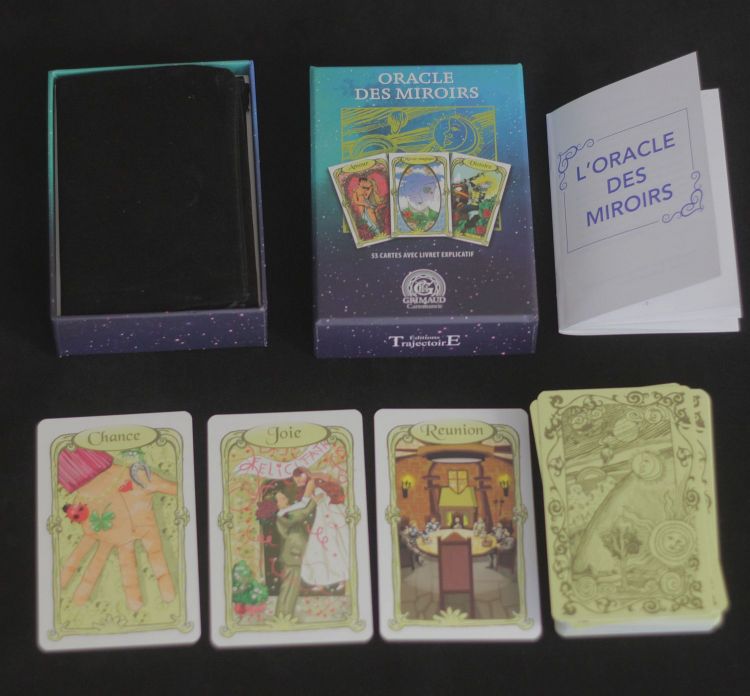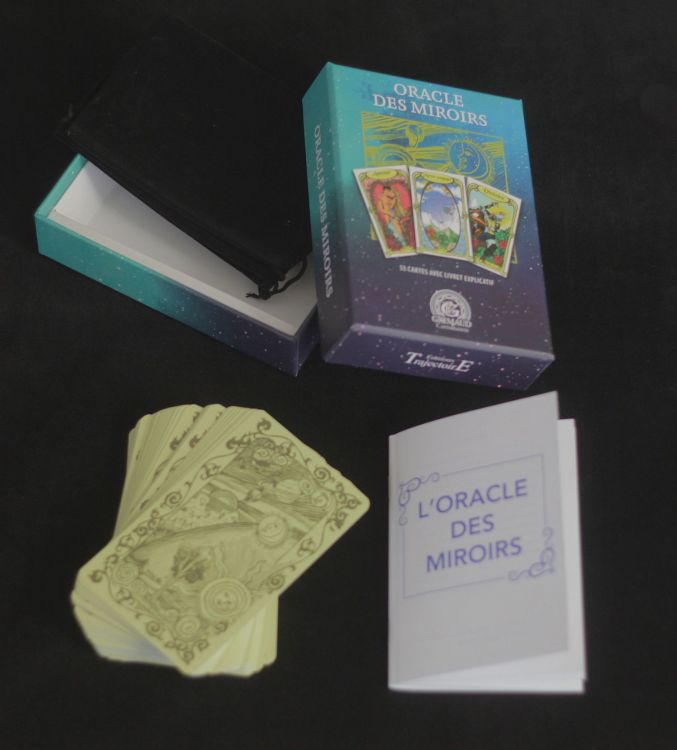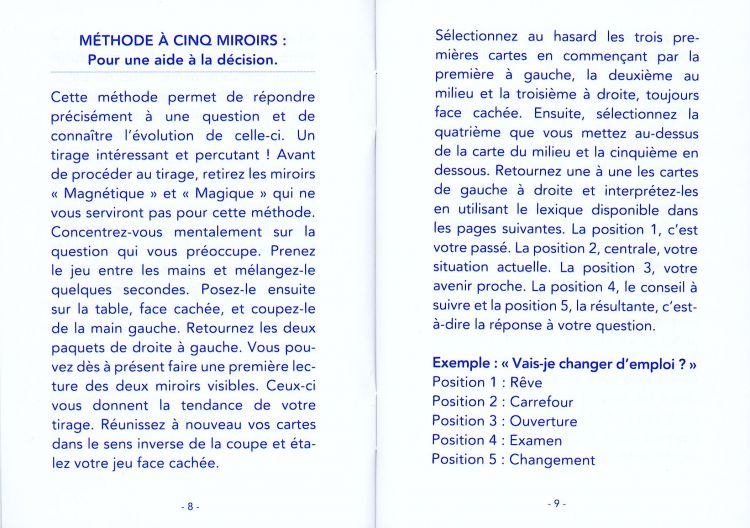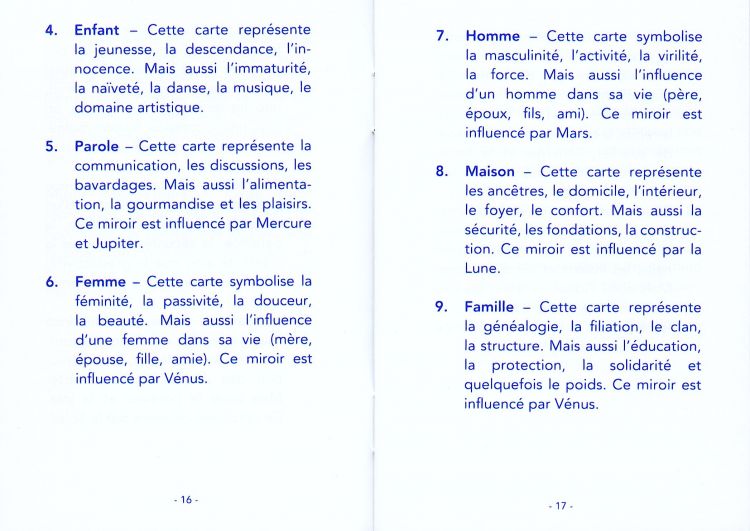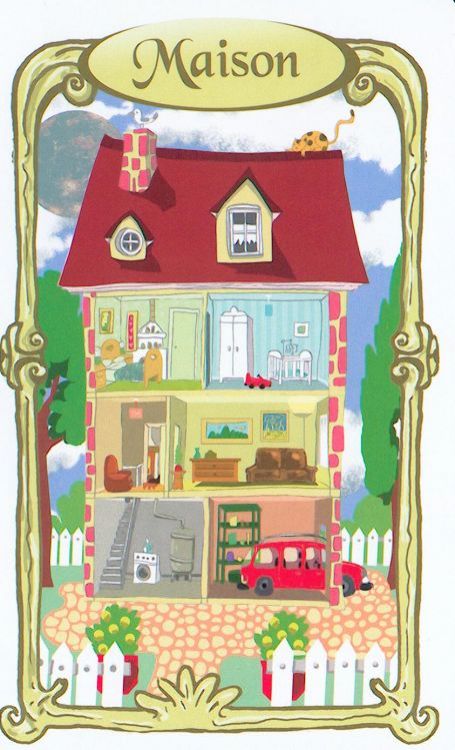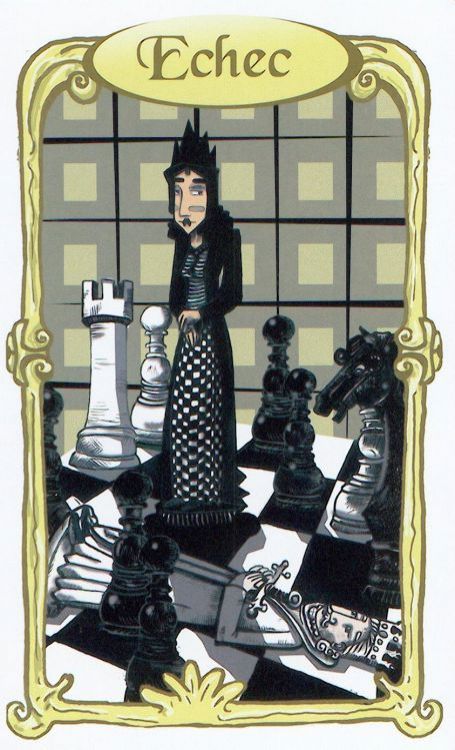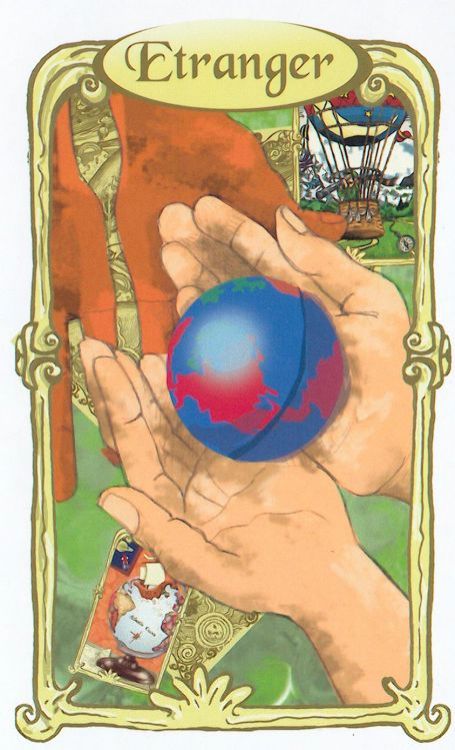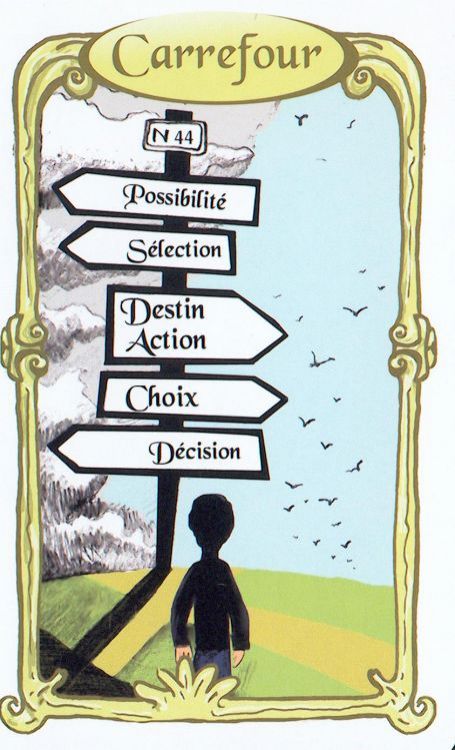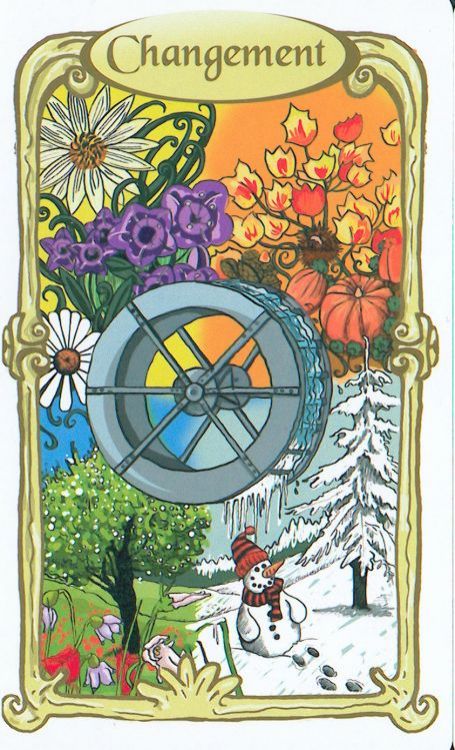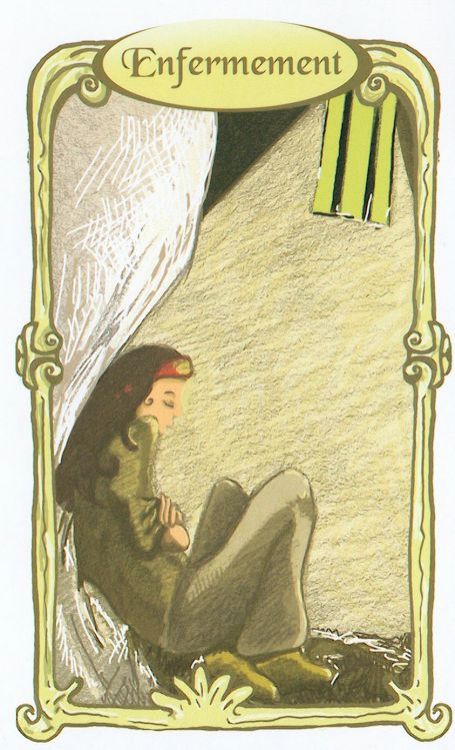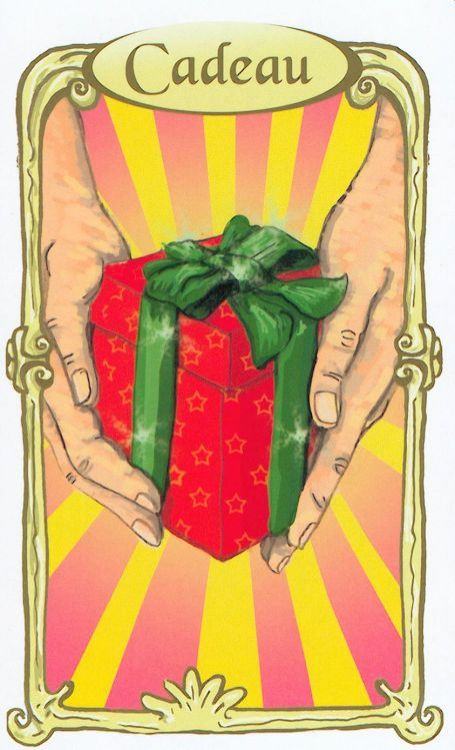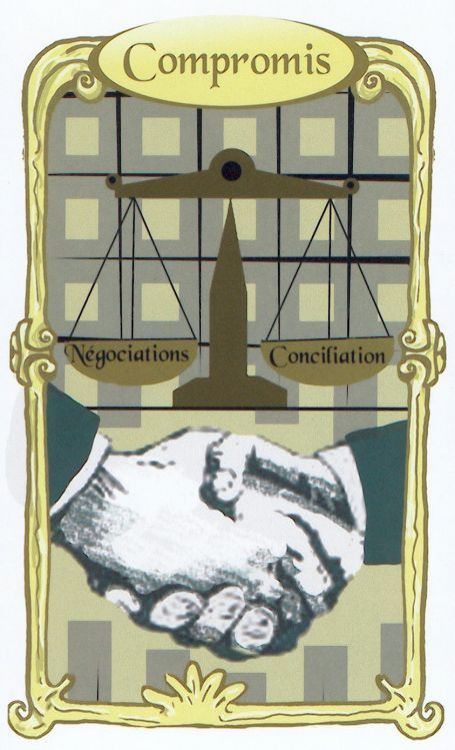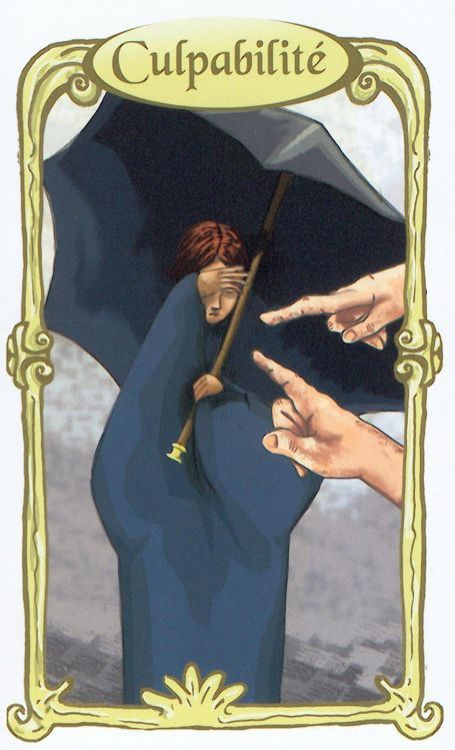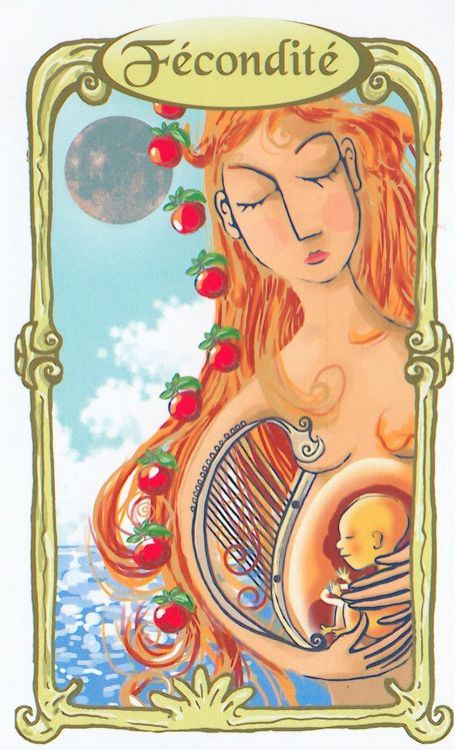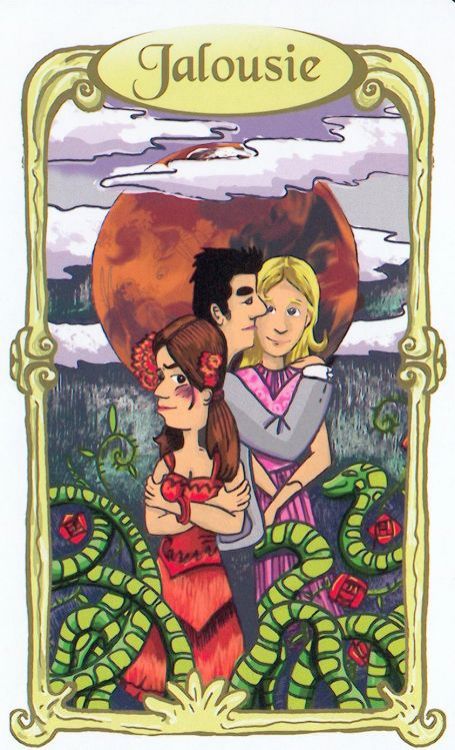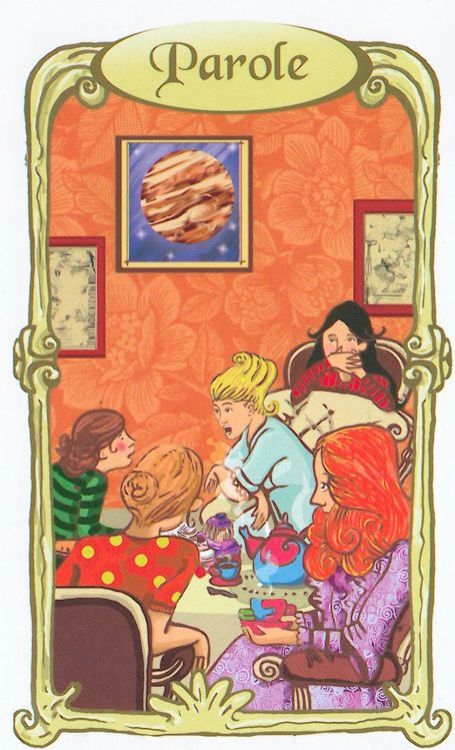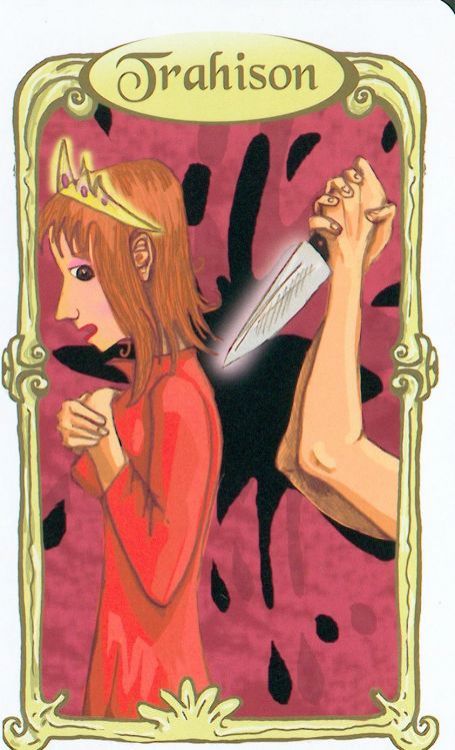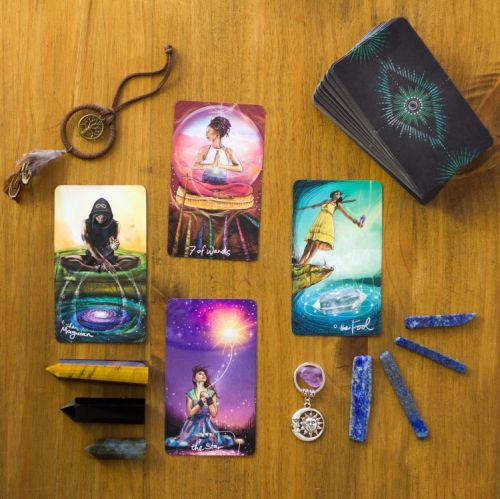Admittedly the images of the Oracle of the Mirrors are sometimes a bit crude, but the game is simple and much more accessible than other oracles such as the Oracle de Belline, the Oracle Gé, or the Oracle de la Triade. Even if this oracle is undoubtedly conceived for clairvoyance or prediction, a psychological use is well and truly possible as the creator states. Indeed, many of the cards deal with psychological aspects, even if some cards such as Gift, Health, Love, Work, Money are typically divinatory cards, with which it may be difficult to find a psychological dimension.
From this psychological oracle perspective, The Oracle of Mirrors is much better than a Kipper (even with the charm of Ciro Marchetti's images), because a Kipper cannot hide its obsolescence from a game designed in the 20th century to entertain ladies in their tea rooms.
I also prefer this deck to the Lenormand cards (whatever the edition) even the extended version of "Gilded Reveries" (containing 8 additional cards) which offers less bourgeois and elitist themes than the Kipper but in no way psychological like the Oracle of Mirrors.
Having said that, I'm not sure that the Oracle of Mirrors stands up to very clearly psychological oracles like the Everyday Witch Oracle or Angels and Ancestors Oracle Cards.
